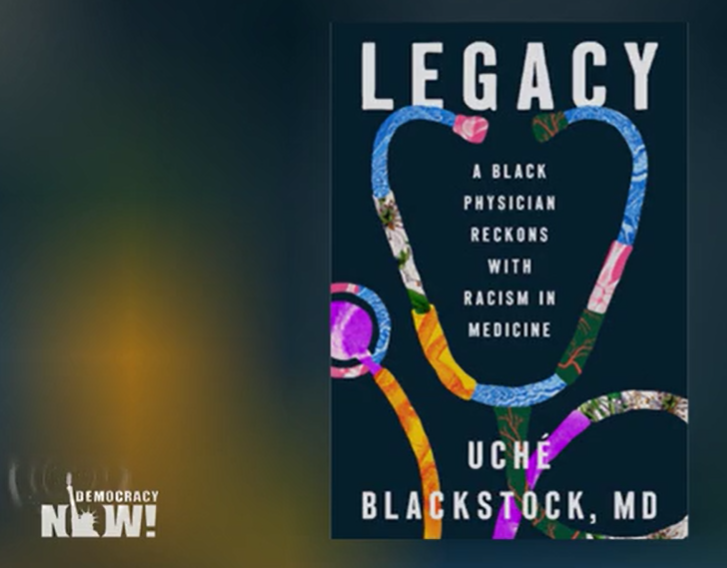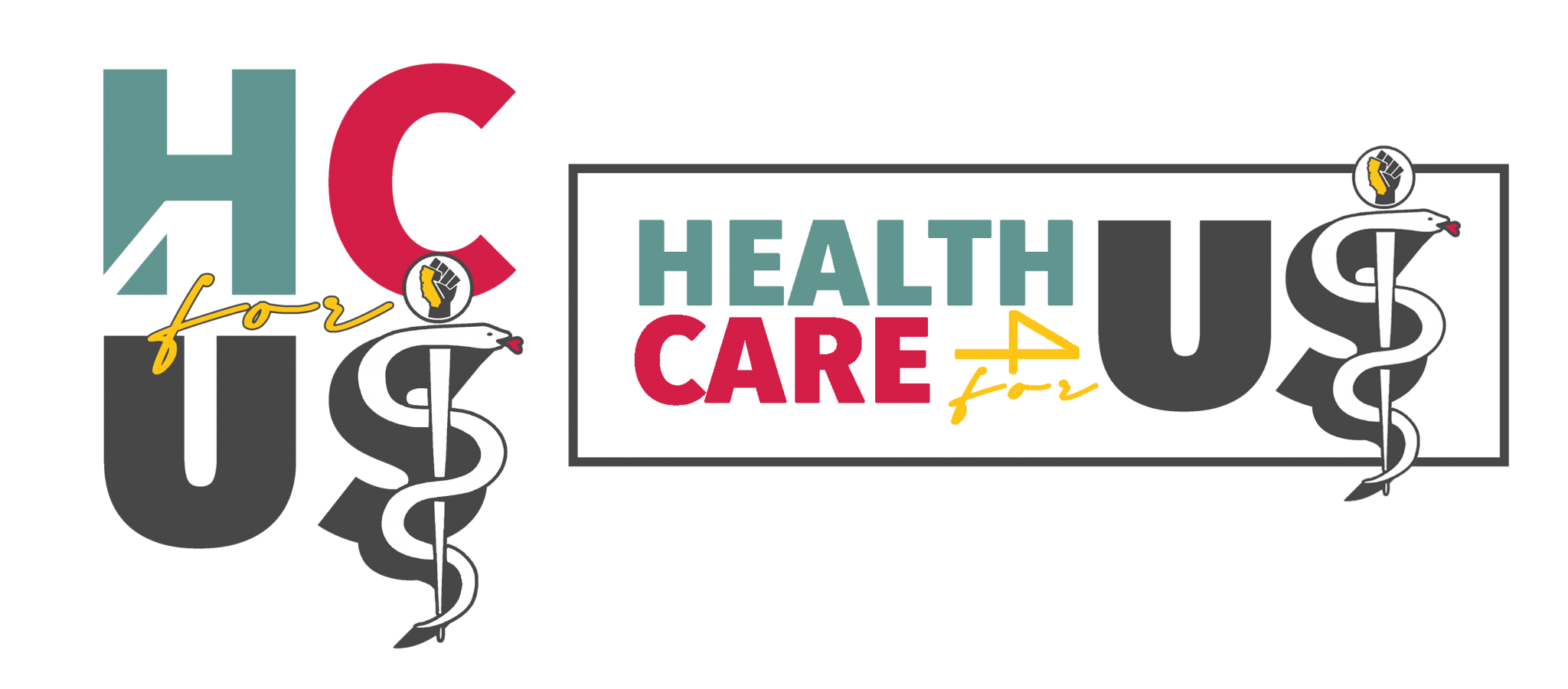“Legacy”: Dr. Uché Blackstock on How Racism Shapes Healthcare in America
Interview with Dr. Uché Blackstock by Democracy Now!
February 1, 2024
 On the first day of Black History Month, we take a look at how racism shapes healthcare in America. We speak with Dr. Uché Blackstock about her new book, Legacy: A Black Physician Reckons with Racism in Medicine. The instant New York Times best-selling book tells her family’s story through multiple generations of Black women physicians while revealing the history of racism that created today’s disparities in medical training and treatment in America. “I use my mother’s story and my story to really emphasize how deeply embedded systemic racism is in our country, in the past and in the present,” says Blackstock. “There is nothing biologically wrong with Black people … but there is something very wrong with the social institutions, not just healthcare, within our country that are deeply embedded with bias and racism.”
On the first day of Black History Month, we take a look at how racism shapes healthcare in America. We speak with Dr. Uché Blackstock about her new book, Legacy: A Black Physician Reckons with Racism in Medicine. The instant New York Times best-selling book tells her family’s story through multiple generations of Black women physicians while revealing the history of racism that created today’s disparities in medical training and treatment in America. “I use my mother’s story and my story to really emphasize how deeply embedded systemic racism is in our country, in the past and in the present,” says Blackstock. “There is nothing biologically wrong with Black people … but there is something very wrong with the social institutions, not just healthcare, within our country that are deeply embedded with bias and racism.”
AMY GOODMAN: This is Democracy Now!, democracynow.org. I’m Amy Goodman, with Nermeen Shaikh.
NERMEEN SHAIKH: Today, on the first day of Black History Month, we take a look at how racism shapes healthcare in America. A new book by Dr. Uché Blackstock explores systemic inequity in healthcare throughout the history of the United States up to today, as well as her own family history.
AMY GOODMAN: The book is titled Legacy: A Black Physician Reckons with Racism in Medicine. Dr. Uché Blackstock is an emergency medicine physician, CEO and founder of Advancing Health Equity, a company that works with healthcare organizations to fight racism and bias in services. She joins us today in New York.
Dr. Blackstock, we spoke to you during the pandemic. We’re speaking to you again today. The issue of health equity, or I should say inequity, is pervasive throughout the healthcare system in this country. If you can lay it out? But start off by talking about your family, your groundbreaking mother as a Black woman physician, you and your twin sister, the remarkable work that you’ve done, and why you’re so motivated to take this issue on.
DR. UCHÉ BLACKSTOCK: Well, thank you so much for having me.
You know, I really wanted to write this book as a way to helping readers connect the dots about why, in 2024, we have the worst racial health inequities, despite advances in innovation, research and technology. So I used my own personal story, you know, being a second-generation Black woman physician, which is something that, unfortunately, is still quite rare. My mother was the original Dr. Blackstock, graduated from Harvard Medical School in 1976, but was the first person in her family to go to college, and then medical school, and then came back and returned to Brooklyn, New York, where she grew up, to care for her neighbors and family, and practicing what’s now known as health equity, organizing community health fairs, connecting residents to the social services that they needed, and working with other Black physicians and Black women physicians to do this work in service to their community. And so, I use my mother’s story and my story to really emphasize that — how deeply embedded systemic racism is in our country, in the past and in the present, and to explain why even myself, as a Black woman with a college and medical degree from Harvard, I still am five times more likely to die of pregnancy-related complications than my white peers.
So I wanted use the history to explain why there are so few Black physicians today, and that’s because of a report called the Flexner Report, that we can talk a little bit more about. But I also wanted to explain how there are deeply rooted myths about Black people in this country, essentially biological essentialism, saying that we are different from other people, even though we know race is a social construct. It really is racism through practices and policies that have harmed Black people in this country over the last centuries and have caused us to live shortened lives.
NERMEEN SHAIKH: Dr. Blackstock, you mentioned the Abraham Flexner report, and you said it’s very important. Could you explain what it is and what impact it had on African Americans in medical schools in the early 20th century?
DR. UCHÉ BLACKSTOCK: So, absolutely. I thought it was very important for people to understand one of the reasons why there are so few Black physicians in the United States. You know, we’re over 13% of the U.S. population, but we represent less than 6% of all physicians. And a lot of that has to do with this groundbreaking and actually very harmful report that came out in 1910 that was commissioned by the American Medical Association, which is the oldest and largest organization of physicians and has its own troubling history with bias and racism. American Medical Association and the Carnegie Foundation commissioned Abraham Flexner, who was an education specialist, and also an avid racist — you can tell from his readings that I’ve included in the book. He believed Black people did not deserve to go to medical school, and if they were in medical school, they were there to help their white peers from getting sick.
[READ FULL ARTICLE HERE]

